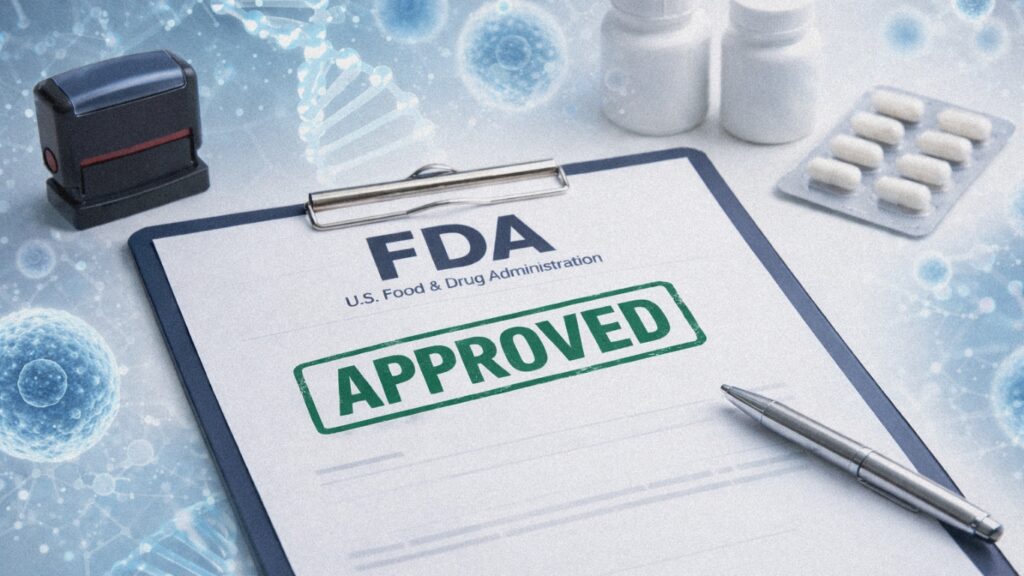As we move through 2024, the landscape of medical technology and pharmaceutical innovation is being shaped by several high-impact clinical trials. These trials are poised to deliver some of the most anticipated FDA approvals of the year. From revolutionary drug therapies to game-changing medical devices, these products have the potential to transform patient care across multiple fields. Here, we focus on the key clinical trials that are nearing completion and the FDA approvals expected to follow.
1. CRISPR Therapeutics and Vertex Pharmaceuticals – CTX001 for Sickle Cell Disease and Beta-Thalassemia
- Trial Focus: Gene Therapy for Blood Disorders
- Current Status: Phase III Clinical Trials Complete
- Anticipated FDA Approval: Mid-2024
- Overview: CTX001 is a CRISPR-based gene therapy developed by CRISPR Therapeutics and Vertex Pharmaceuticals, designed to treat sickle cell disease and beta-thalassemia. This one-time treatment involves editing the patient’s hematopoietic stem cells to produce normal hemoglobin, thus correcting the genetic mutation responsible for these blood disorders.
- Trial Results: Phase III trials have shown that a significant proportion of patients treated with CTX001 have remained free of blood transfusions for over a year, with improvements in quality of life and symptom relief. This therapy is expected to receive FDA approval in mid-2024, marking a major milestone in the gene therapy field.
- Why It’s a Game-Changer: If approved, CTX001 will be one of the first CRISPR-based therapies to hit the market, offering a potential cure for patients suffering from these life-threatening blood disorders. It will also pave the way for future gene therapies targeting other genetic diseases.

2. Medtronic – MiniMed 780G Advanced Hybrid Closed-Loop System
- Trial Focus: Automated Insulin Delivery for Type 1 Diabetes
- Current Status: Pending FDA Approval
- Anticipated FDA Approval: Q3 2024
- Overview: The MiniMed 780G system is Medtronic’s next-generation hybrid closed-loop system designed to automate insulin delivery for individuals with Type 1 diabetes. It continuously monitors blood glucose levels and automatically adjusts insulin dosing, providing better glycemic control with minimal user intervention.
- Trial Results: Clinical trials demonstrated that patients using the MiniMed 780G system experienced a significant reduction in HbA1c levels and an increase in the time spent in target glucose range. The device’s advanced algorithm provides real-time glucose adjustments, reducing the risk of hypoglycemia and hyperglycemia.
- Why It’s a Game-Changer: This device offers enhanced convenience and safety for diabetes patients, potentially reducing the burden of daily disease management. If approved, it will be one of the most advanced insulin delivery systems available, improving outcomes for Type 1 diabetes patients worldwide.
3. Gilead Sciences – Lenacapavir for HIV Treatment
- Trial Focus: Long-Acting HIV Therapy
- Current Status: Phase III Trials Completed
- Anticipated FDA Approval: Late 2024
- Overview: Gilead Sciences is developing Lenacapavir, a long-acting HIV treatment designed to be administered just twice a year. This injectable capsid inhibitor targets a novel part of the HIV virus, making it highly effective in patients with multi-drug-resistant HIV strains.
- Trial Results: Lenacapavir has shown remarkable efficacy in Phase III trials, maintaining viral suppression for extended periods and offering a promising alternative to current HIV treatments that require daily administration.
- Why It’s a Game-Changer: If approved, Lenacapavir could revolutionize HIV care by significantly reducing the treatment burden on patients. This long-acting therapy offers a convenient, low-maintenance option, particularly for those with resistant HIV strains.
4. Boston Scientific – WATCHMAN FLX for Atrial Fibrillation
- Trial Focus: Stroke Prevention in Atrial Fibrillation
- Current Status: Final Trial Data Submitted
- Anticipated FDA Approval: Mid-2024
- Overview: The WATCHMAN FLX is a left atrial appendage closure device designed for patients with atrial fibrillation (AFib) who are at increased risk of stroke. This device offers an alternative to long-term anticoagulation therapy by sealing off the left atrial appendage, where clots typically form in AFib patients.
- Trial Results: Clinical trials show that the WATCHMAN FLX significantly reduces the risk of stroke while avoiding the complications associated with anticoagulant medications, such as bleeding. The device has also been associated with faster recovery times and fewer complications compared to older versions of the WATCHMAN device.
- Why It’s a Game-Changer: This next-generation device could become a cornerstone in stroke prevention for AFib patients, particularly those unable to tolerate long-term anticoagulants. It provides a permanent solution to stroke prevention without the ongoing need for medication.

5. Pfizer – RSVPreF Vaccine for Respiratory Syncytial Virus (RSV)
- Trial Focus: Vaccine for RSV Prevention in Older Adults
- Current Status: Final Data Submitted to FDA
- Anticipated FDA Approval: Q2 2024
- Overview: Pfizer’s RSVPreF vaccine is aimed at preventing Respiratory Syncytial Virus (RSV) in adults aged 60 and older. RSV is a major cause of respiratory illness, especially in older populations, where it can lead to serious complications.
- Trial Results: In Phase III clinical trials, the vaccine demonstrated strong efficacy in preventing RSV-related lower respiratory tract infections and hospitalizations in older adults. It was well tolerated with minimal adverse effects.
- Why It’s a Game-Changer: If approved, RSVPreF will be the first vaccine available to protect older adults from RSV, offering a much-needed solution for preventing this potentially serious infection. Its approval could reduce hospitalizations and complications during RSV season, particularly in vulnerable populations.
Conclusion
The upcoming FDA approvals of these medical devices and pharmaceutical treatments have the potential to reshape the healthcare landscape in 2024. From gene therapies offering potential cures for genetic diseases to cutting-edge devices improving chronic disease management, these innovations represent the next generation of healthcare solutions. As these trials reach their final stages, the healthcare community eagerly awaits the positive impact these products could have on patient care.



